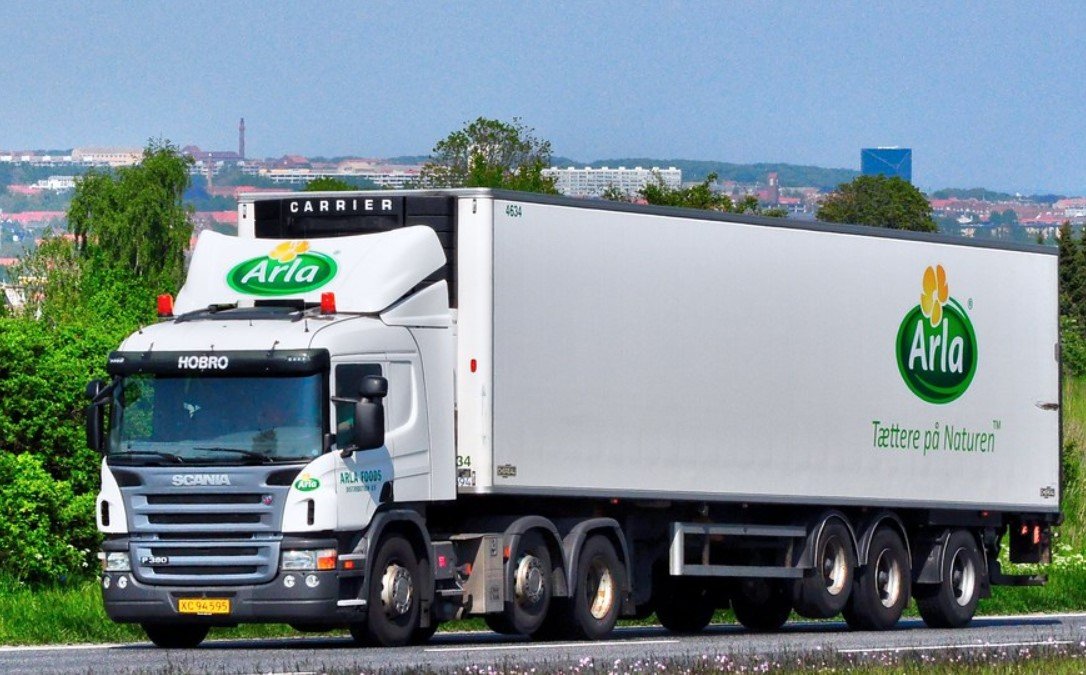Arla Foods, the European dairy cooperative, has reported that its branded products saw a strong growth in the second half of 2023, after a challenging first half due to the COVID-19 pandemic and the consumer shift to discounted products. The company said that it expects the positive trend to continue in 2024, and that it will pay a higher than expected dividend to its farmer owners.
Arla Foods Reports Flat Revenue but Higher Profit for 2023
Arla Foods reported its 2023 results on February 20, 2024, and said that its revenue was EUR 13.7 billion, roughly the same level as its 2022 revenue of EUR 13.8 billion. The revenue was impacted by negative currency effects, mainly on SEK, GBP, and USD, as well as the deflation and volatility in the global dairy market.
However, the company said that its profit was higher than expected, at EUR 380 million, or 2.8% of revenue, which is at the bottom end of its target range of 2.8-3.2%. The company attributed its profit to its efficiency programme, which exceeded its ambitions, and its improved leverage.
The company also said that it will pay a supplementary payment, including interest on contributed capital, to its farmer owners of 2.07 EUR-cent per kg of milk delivered, equaling EUR 270 million in total, well-above the level set in its retention policy.

Arla Foods Recovers from a Challenging First Half with Strong Branded Growth
Arla Foods said that its performance in the second half of 2023 was much better than in the first half, as consumer sentiment improved and more customers returned to its brands. The company said that its strategic branded volume driven revenue, which measures the revenue from its branded products, fell 6% in the first half but grew 4.1% in the second half of the year.
The company said that its brands, such as Lurpak, Castello, and Arla, performed well across all markets, especially in Europe, where the revenue growth was mainly based on pricing efforts implemented in late 2022. The company also said that its innovation pipeline was strong, and that it launched several new products, such as Arla Jörđ, a plant-based range, and Arla Protein Zero, a high-protein, low-sugar yogurt.
The company also said that it expects the positive momentum to continue in 2024, and that it will focus on growing its brands, expanding its geographical footprint, and increasing its sustainability efforts.
Arla Foods Makes Significant Progress in Reducing Carbon Emissions
Arla Foods also announced that it has made significant progress in reducing its carbon emissions, cutting close to 1 million tonnes of CO2e in the last two years. The company said that it is on track towards its 2030 target of reducing its emissions by 30% per kg of milk, compared to 2015 levels.
The company said that it has achieved its reductions by implementing various initiatives, such as increasing the use of renewable energy, improving the efficiency of its operations, and reducing the waste and the water consumption. The company also said that it has launched a sustainability incentive model, a point-based system that rewards its farmer owners for their on-farm sustainability activities, such as using renewable energy, improving animal welfare, and enhancing biodiversity.
The company also said that it has launched a new programme to help its customers with their scope 3 reductions, which are the emissions from their value chain. The company said that it will offer its customers carbon-neutral dairy products, by offsetting the emissions from the production and the transportation of the products, using verified carbon credits from its own projects.
Arla Foods is one of the world’s leading dairy cooperatives, owned by more than 9,000 farmers from Denmark, Sweden, Germany, the UK, Belgium, Luxembourg, and the Netherlands. The company produces a wide range of dairy products, such as milk, cheese, butter, yogurt, and cream, under its own brands and private labels. The company also produces ingredients for the food industry, such as whey and milk powder.
